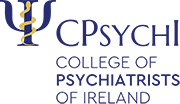Perimenopause isn’t just about hot flushes or irregular periods—it’s a profound shift that reverberates throughout the mind as well as the body. For many women, this transition brings unexpected psychological changes: mood swings, anxiety, low motivation, irritability, and even feelings of emotional “flatness.” These experiences often arrive years before menstruation stops, making them confusing and sometimes distressing.
Understanding Perimenopause
Perimenopause marks the transition leading up to menopause, often beginning in the late 30s or 40s and lasting anywhere from a few years to over a decade. During this time, levels of oestrogen, progesterone, and testosterone fluctuate significantly, which doesn’t just affect the body but also the brain.
These hormonal changes alter neurotransmitter activity, impacting mood regulation, stress response, and sleep. In fact, studies suggest that up to 70% of women report irritability as one of their main perimenopausal symptoms (Daily Telegraph, 2023).
Emotional Symptoms: More Than Just Mood Swings
Emotional Flatness
Some women describe a sense of feeling emotionally “flat”—less joy, less enthusiasm, and sometimes difficulty connecting emotionally with others. This phenomenon is linked to declining oestrogen, which affects serotonin and dopamine pathways in the brain.
Irritability and Anger
For others, fluctuating hormones can trigger sudden irritability or intense anger, sometimes described as “perimenopausal rage.” This can lead to feelings of guilt or strain within relationships, especially when women themselves don’t fully understand why they’re reacting differently.
Anxiety and Low Mood
Anxiety and low mood are also common, particularly when combined with poor sleep due to night sweats or insomnia. These factors can create a cycle where tiredness exacerbates irritability, and irritability increases feelings of anxiety and overwhelm.
Why Mental Health Symptoms Often Arrive First
Hormonal changes during perimenopause often affect mental health before physical symptoms become noticeable. This means that many women may not initially link their anxiety, irritability, or mood swings to perimenopause.
The main reasons include:
- Hormone fluctuations: Erratic oestrogen levels disrupt neurotransmitters like serotonin and dopamine.
- Sleep disturbances: Hot flushes and night sweats often interfere with sleep, which can worsen emotional regulation.
- Cumulative stress: Many women in their 40s are juggling work, family, and financial responsibilities. Perimenopause adds another layer of strain.
- Lack of awareness: Without clear knowledge of perimenopausal symptoms, many attribute emotional changes to personal or external stressors instead.
Commentary from Dr. Becky Spelman
“As a psychologist, I see many women who are surprised at how strongly perimenopause affects their emotional health. Often, the psychological changes—such as mood swings, anxiety, or a sense of emotional numbness—arrive before the more obvious physical signs. Recognising that these experiences are hormonally driven can help women be kinder to themselves and seek support sooner.”
“In early perimenopause, some women find they can still predict their mood patterns according to their cycle. This can provide a sense of control, as tracking symptoms often highlights when the tougher days are likely to arrive. However, as perimenopause progresses, these patterns usually become harder to identify.”
“I often advise women to prioritise meaningful downtime during this stage of life. It isn’t just a luxury; it’s essential for both mental and physical health. Small breaks throughout the day can help reset the nervous system and improve cognitive flexibility, which makes it easier to cope with challenges.”
Practical Strategies for Protecting Mental Health
1. Track Your Cycle and Symptoms
Keeping a journal or using an app to log moods, sleep, and energy levels can help identify patterns. Even if cycles become irregular, recognising trends offers valuable insight.
2. Prioritise Rest and Recovery
Ensuring regular downtime is key. This could be as simple as a daily walk, mindfulness practice, or committing to earlier bedtimes. Good sleep hygiene is especially important.
3. Communicate with Loved Ones
Open conversations with partners, family, or close friends can reduce misunderstandings. Explaining that mood changes are hormonally influenced often helps reduce guilt and conflict.
4. Explore Medical Support
Hormone replacement therapy (HRT) is an option for many women and can make a significant difference. It’s important to seek medical advice early and, if needed, get a second opinion if concerns aren’t being taken seriously.
5. Build a Personal Self-Care Toolkit
Gentle exercise, breathwork, relaxation techniques, and journaling can all help regulate emotions. Consistency is more important than intensity.
An 8-Week Mental Health Toolkit for Perimenopause
| Week | Focus Area | Practice |
|---|---|---|
| 1 | Start Tracking | Log mood, sleep, and energy daily. |
| 2 | Identify Patterns | Look for recurring low-energy or anxious days. |
| 3 | Create Downtime Rituals | Schedule at least 15–20 minutes daily for mindful relaxation. |
| 4 | Open Up | Share your experiences with a trusted friend, partner, or support group. |
| 5 | Optimise Sleep | Improve sleep hygiene: reduce screen time, manage room temperature. |
| 6 | Gentle Movement | Add activities like yoga, walking, or light stretching. |
| 7 | Consider Medical Advice | Consult with your GP about HRT or other support options. |
| 8 | Reflect and Adjust | Review progress and adjust strategies as needed. |
When to Seek Professional Support
If mood swings, anxiety, or low mood are interfering with daily life, it’s important to seek help. Professional support can include therapy, medical treatment, or a combination of both. Remember, perimenopause is a natural life stage, but that doesn’t mean you have to struggle in silence.
Final Thoughts
Perimenopause is as much a psychological journey as a physical one. While many women expect hot flushes or irregular cycles, fewer anticipate the significant impact on mental health. Understanding the role hormones play in emotional changes is empowering—it reframes symptoms as biological rather than personal failings.
As Dr. Becky Spelman notes, “You don’t have to wait until perimenopause becomes overwhelming to take action. Early awareness, self-care, and professional support can make this transition far more manageable.”
















